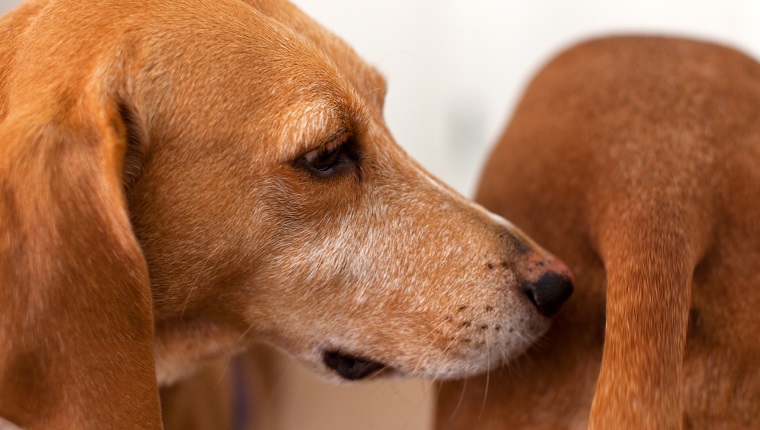Passing gas is as natural as breathing. That’s not to say that an unwelcome gust of wind isn’t disorienting when it’s unexpected. We pet parents know all too well that even our furry friends aren’t exempt from sudden stink bombs.
Just like in humans, farting can either be a passing — pun intended — occurrence or a pressing problem in dogs. Responsible pet parents should know when to differentiate between the two.
Before laughing off this smelly problem, make sure your dog’s excess gas isn’t a sign of a health risk.
When Is Farting Normal For Dogs?

As far as species go, not everyone farts. Surprisingly, this includes birds, and that’s because they do not make the gaseous byproducts needed to produce flatulence.
However, like humans, dogs pass gas, and part of this is related to their diet. Some diets can produce the smelly gases in your pup’s gut. Changing their diet can make this even more pronounced, especially for those who recently switched to or added human food components into their daily meals.
Another safe and normal reason why your dog farts may be due to their eating habits. Quickly chowing down on food can result in your pup scarfing down air alongside their meal.
Make sure they eat slowly, or put smaller portions in the bowl to keep them from eating too much too fast.
Illness? Or Just Gas in the G-Tract?
Not all farts are good, though. Illness in the gastrointestinal tract may also cause farts — and not the healthy kind. According to the American Kennel Club, nutrient malabsorption can increase gas in a dog’s intestines.
Some dogs may be more prone to specific conditions. Boxers and French Bulldogs may be more likely to develop histiocytic ulcerative colitis. Wheaten Terriers and Yorkshire Terriers may more likely suffer from inflammatory bowel disease.
Pet parents should also be wary of parasites and other bacteria in the small intestines, which can cause flatulence. Apart from excessive gas, dogs may also suffer from appetite loss, vomiting, diarrhea, and pain in the abdomen.
Watch for symptoms. If your dog is passing gas more than usual, if their gas smells especially bad, or they show signs of abdominal discomfort, think about whether they’ve gone through any diet changes recently. If they haven’t, it’s best to consult your vet when these symptoms start appearing.
Does your dog pass gas a lot? Can you tell when they’re not feeling well by their flatulence? Let us know in the comments below!
Related Articles:





